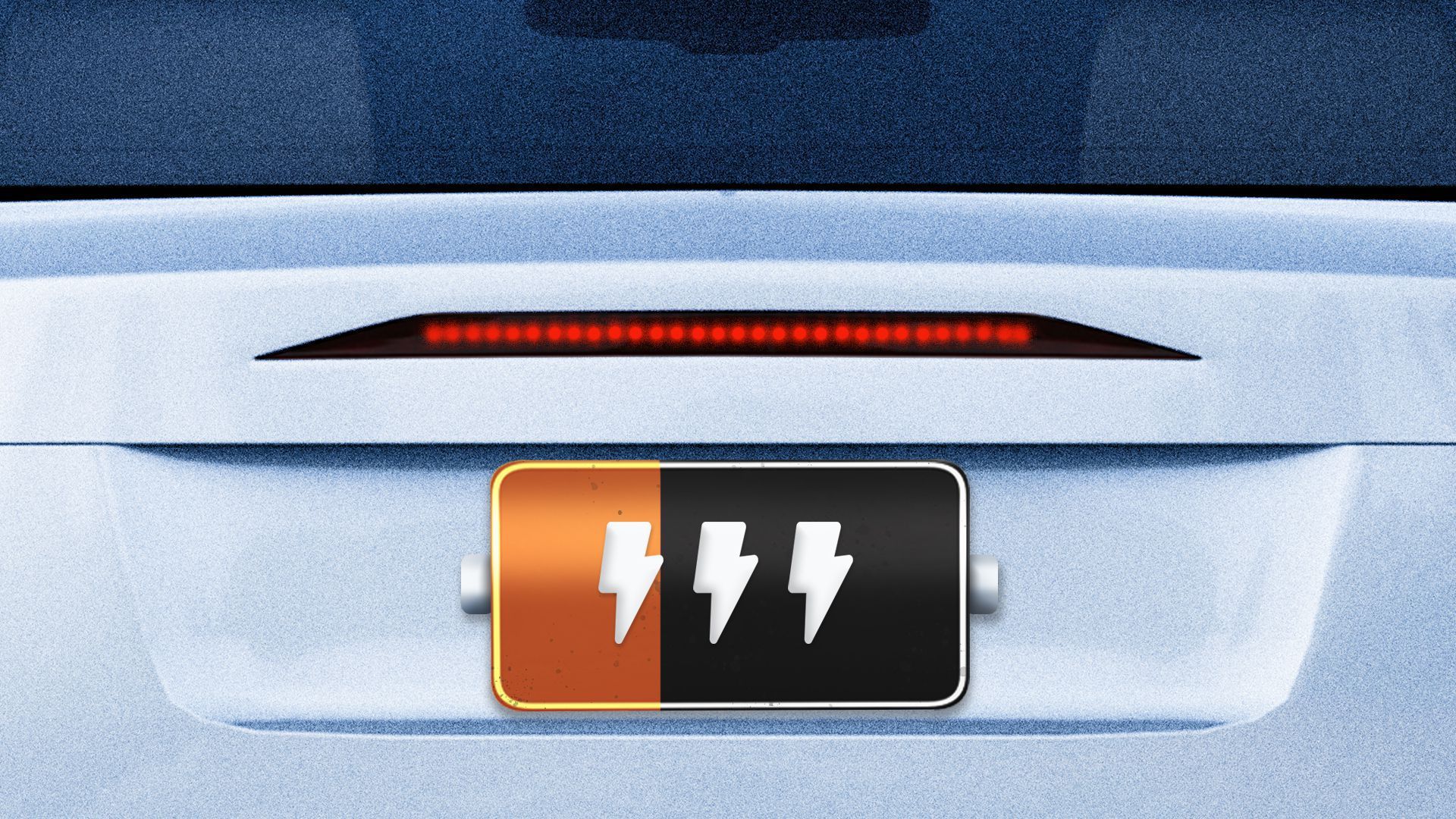Red and purple state growth of green car factories
Add Axios as your preferred source to
see more of our stories on Google.

Illustration: Sarah Grillo/Axios
Toyota's plan to build a manufacturing plant in North Carolina for EV batteries is the latest move by auto giants, startups and suppliers to set up shop in conservative or swing-y states.
Driving the news: On Monday, the company said it's building a $1.3 billion plant in the Greensboro area to produce batteries for hybrid and electric vehicles.
- Toyota said it would create 1,750 jobs and begin operations in 2025 with the capacity to produce enough batteries for 800,000 vehicles per year, with plans for further growth later.
- "North Carolina said the new plant will initially produce batteries for Toyota’s hybrid vehicles, and intends to produce batteries for EVs long term," Reuters reports. Axios' Rebecca Falconer has more.
Catch up fast: It wasn't the only N.C.-related move Monday. Separately, the EV startup Arrival announced an $11.5 million investment to assemble high-voltage battery modules in Charlotte.
Why it matters: They're among a suite of plans to build new battery or electric vehicle factories in red or purple states.
- Ford is investing billions in battery and vehicle manufacturing in Tennessee and Kentucky.
- The well-funded EV startup Rivian is reportedly eyeing Georgia for its second manufacturing plant (Texas has also been mentioned).
- Tesla has built a new auto factory in the Austin, Texas, region and moved its corporate HQ there.
- GM and battery giant LG Chem are building a new plant in Tennessee. SK Innovation, another battery firm, is building a plant in Georgia.
- The startup Canoo is planning facilities in Oklahoma and Arkansas.
- The luxury EV startup Lucid Motors has begun producing cars at its factory in Arizona.
What we're watching: Whether the industry's growing presence in conservative-leaning regions will boost political support for more aggressive federal EVs incentives, or transportation-focused climate policies more broadly.
- "These announcements will ultimately short circuit the abstract ideological arguments and ground the clean-energy transition in material, local gains," Mark Muro, an expert in industrial transitions with the Brookings Institution, said via email.
The intrigue: One wrinkle in the placement of EV manufacturing is that Democrats' social and climate spending plan under negotiation provides much larger consumer incentives for union-built cars.
- But that's drawing pushback from nonunion automakers and the European Commission.
Go deeper ... IEA report: A stronger renewables forecast still falls short
